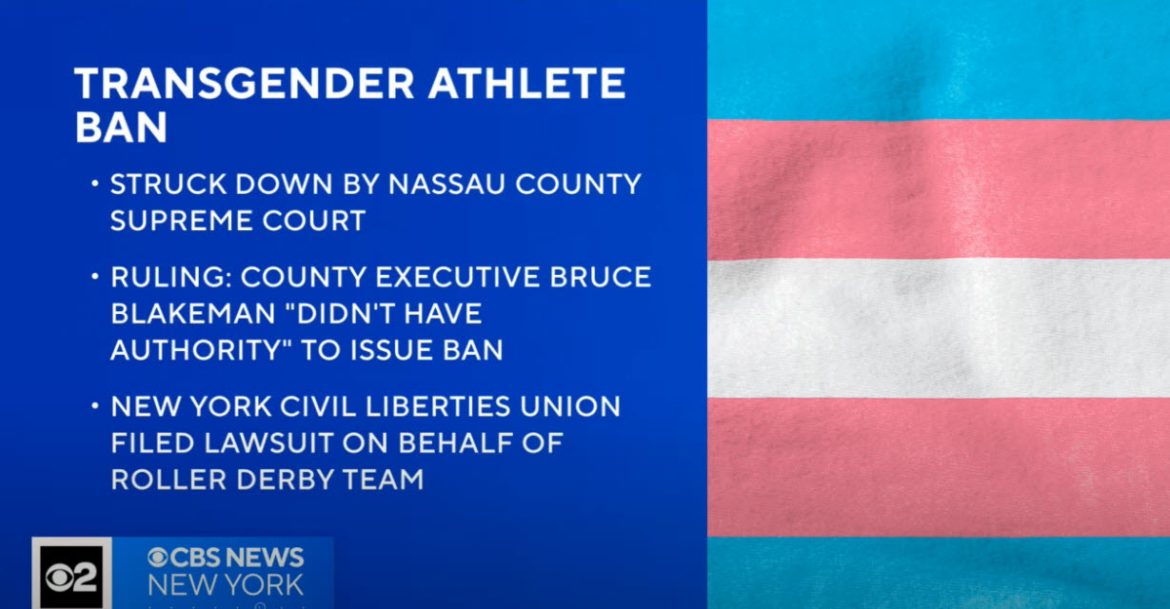A judge in New York has overturned a ban on transgender women competing in women’s sports in Nassau County, ruling that County Executive Bruce Blakeman lacked the authority to enact such a ban through an executive order. The decision follows a lawsuit filed by the Long Island Roller Rebels, a women’s roller derby league, challenging the ban issued in February.
The court’s ruling has significant implications for the rights of transgender athletes in the region. The judge’s decision underscores the limits of executive authority in local governance, emphasizing that such policies should be established through legislative processes rather than unilateral executive actions.
Bruce Blakeman defended his executive order, arguing that the ban was necessary to protect female athletes from potential injuries and ensure fair competition. Blakeman expressed his dissatisfaction with the court’s ruling, stating that it undermines efforts to safeguard the welfare of girls and women in sports.
The Long Island Roller Rebels, who brought the lawsuit, celebrated the court’s decision as a victory for inclusivity and the rights of transgender individuals. The league argued that the ban was discriminatory and violated the principles of equality and fairness in sports. Their legal challenge highlighted the broader societal debate over the inclusion of transgender athletes in gender-segregated sports.
This ruling marks a pivotal moment in the ongoing discussion about transgender rights and sports. Advocates for transgender inclusion argue that such bans are rooted in discrimination and perpetuate harmful stereotypes. They stress the importance of allowing transgender athletes to compete in accordance with their gender identity, promoting a more inclusive and equitable sporting environment.
Opponents of transgender inclusion in women’s sports, like Blakeman, argue that it raises concerns about competitive balance and the safety of female athletes. This perspective has fueled similar legislative efforts and executive orders in various jurisdictions, leading to legal battles across the country.
As the debate continues, this case from Nassau County is likely to serve as a significant precedent for future legal and policy discussions regarding transgender athletes’ rights. The court’s decision reinforces the necessity of approaching such complex issues through comprehensive legislative frameworks rather than executive mandates.
The ruling has been met with mixed reactions from the public, reflecting the deeply polarized views on this issue. While some celebrate it as a step forward for transgender rights, others express concerns about its implications for women’s sports.



